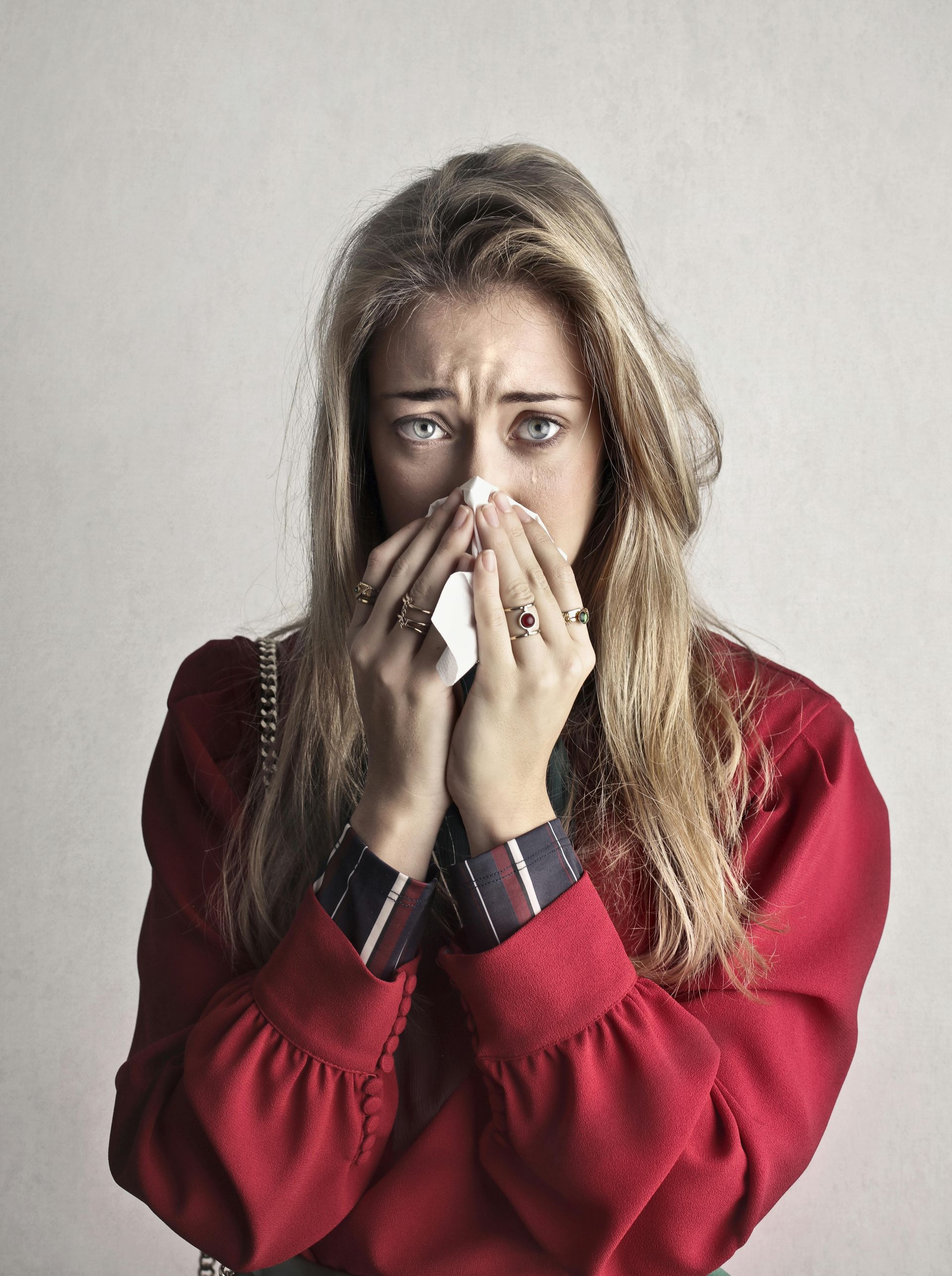INFLUENZA
After an incubation period of 1 to 3 days, an Influenza illness is generally characterized by the abrupt onset of high fever with chills, headache, tiredness, muscle aches, and a dry cough. 103 to 105 F degrees of fever are common with influenza. Then, the respiratory signs of sore throat, nasal congestion, and cough become more prominent. Less commonly, eye redness and watery discharge, abdominal pain, nausea, vomiting and diarrhea can also be present.
In some children, influenza can have the appearance of a simple “cold virus” or it can appear as a fever illness with few respiratory signs. In newborn babies and very young infants, influenza can produce a variety of symptoms which can be more serious. The infection can look like sepsis in a young infant (a severe, generalized bacterial infection) requiring several tests to investigate this possibility. Besides the above routine symptoms of the flu, it can occasionally cause croup, apnea, or pneumonia in these infants.
Generally, Influenza is spread from person to person by direct contact, droplets (as from a sneeze), or from articles recently contaminated by nasal secretions. You can catch the flu through the air when a person who has the virus sneezes, coughs, or speaks. People also can catch the virus after touching a contaminated object that someone with the virus sneezed or coughed on. Influenza organisms can live on surfaces for several hours. Therefore, cleaning of surfaces and discarding used tissues are very important during flu outbreaks, especially in schools. During an outbreak of influenza, the highest attack rates occur in school-age children. Secondary spread to adults and other children within the family is very common.
Influenza is highly contagious, especially among institutionalized populations. People with the flu are most infectious in the 24 hours before the onset of symptoms and during the period of peak symptoms. They usually remain contagious from 5 to 7 days from the onset of symptoms.
After five days, fever and other symptoms have usually disappeared, but a cough and weakness may persist for several more days. All symptoms are usually gone within 7 to 14 days. Pneumonia, sinusitis, and ear infections are occasional complications of the flu.
Because the flu is a viral illness, antibiotics don’t help. There are flu medications which can shorten the duration and diminish the severity of the illness if begun within 48 hours of the onset of the illness. Should you become ill with the flu, and desire to be treated by a flu medication, you should contact us early in the illness to obtain appropriate treatment.
Any of the following symptoms during a flu illness are concerning and should prompt an office visit: fast breathing, trouble breathing, wheezing, bluish skin color, not drinking enough fluids (the signs of dehydration are a dry mouth and poor urine output, less than three times per day), excessive sleepiness, or fever with the development of a rash. In babies, severe irritability should prompt a visit. Lastly, after the flu symptoms have improved, any worsening should prompt an office visit.
Here are some tips for avoiding the flu: avoid touching your eyes, nose, and mouth; wash your hands often; get plenty of sleep to keep your immune system healthy; cover your nose and mouth with a tissue when you sneeze or cough; put used tissues in the trash; if you don’t have a tissue, cough or sneeze into your upper sleeve, not your hands; clean your hands after coughing or sneezing - wash with soap and water or use alcohol-based hand cleaner.
The CDC webpage on influenza can be found here for this year: https://www.cdc.gov/flu/season/2025-2026.html
Treatment of the flu:
- drink lots of fluids to prevent dehydration.
- get plenty of sleep and rest.
- take acetaminophen or ibuprofen to relieve fever and aches.
- do not give aspirin if you have the flu. This is to prevent Reye’s syndrome.
- call a doctor if your child seems to get better but then feels worse, develops a high fever, has any trouble breathing, or seems confused. These can be a signal of complications of the flu.
- keep sick kids home from childcare or school and limit their contact with others; kids should stay home 7 to 10 days after the onset of illness.
- if your child becomes ill with a flu-like illness consult us early in the illness. Medications are available to treat the illness if begun early enough.


